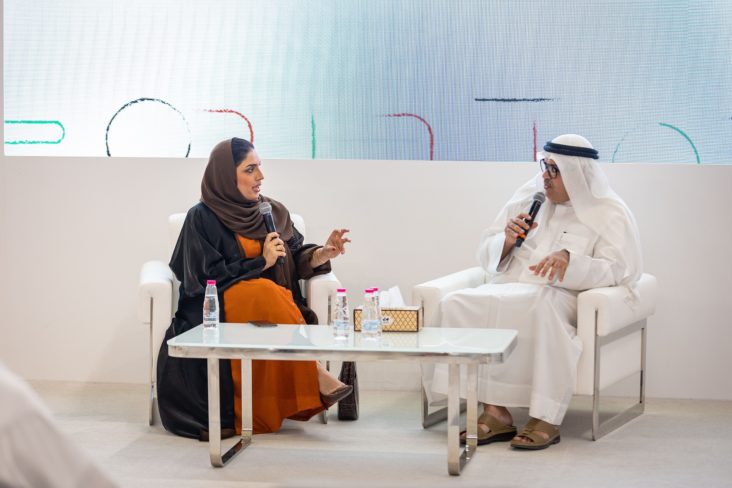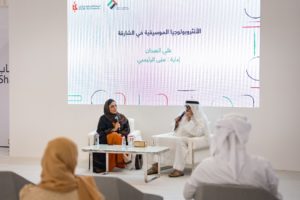Researcher Ali Al Abdan: Sharjah Views Traditional Musical Arts As A Tool For Cultural Communication With The World

True to its name as the cultural capital of the UAE, the emirate of Sharjah views traditional musical arts as tool for cultural communication with countries around the world, noted Emirati researcher Ali Al Abdan at the Emirati Book Fair (EBF). He added that the emirate has a deep interest in musical anthropology – astudy of music from the cultural and social aspects of the people who make it.
Al Abdan, Director of the Artistic Heritage Department at the Sharjah Institute for Heritage, was a speaker at the session titled “Musical anthropology in Sharjah”held on the sidelines of the book fair.
During the session moderated by Muna Al Raisi, Al Abdan said: “The Sharjah Heritage Institute has a special section for musical art research, which has become one of Sharjah’s cultural communication tools. The department organises art activities when Sharjah represents the UAE’s culture at international events. It also seeks to connect with international arts through heritage organisations to host them locally in the visiting countries”.
He pointed out that the arts are a part of everyday life in the UAE, which is a coastal country with internal and external sources for its musical arts.Many of them originated within the country itself.For instance, people engaged in maritime professions used songs such as Al Ayyala and Al Razfa to boost the morale of divers during pearling.The external music sources came from immigrants of African countries who performed their songs and music on special occasions.
Al Abdan said that the science of musical anthropology studies the changes in musical arts due to social and political factors. He added that it seeks answer to two broad questions: Why do humans create music? And how?
He stressed that every environment has reasons to create music. While Emiratis use AlAyyala to denote pride and glory, they have other music for celebrations and to document identities.
Regarding the influence of modernity on Emiratis, Al Abdan stressed that it is normal, especially in a culturally rich environment as the UAE today. He noted that folk arts are not affected by the changes in other musical arts, attributing it to public respect and near-unanimity in preserving heritage.


